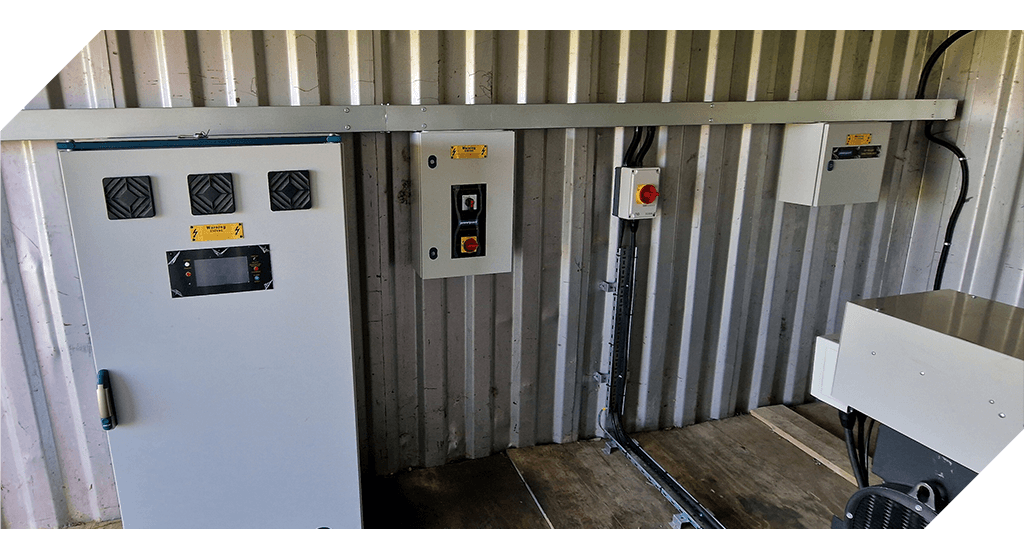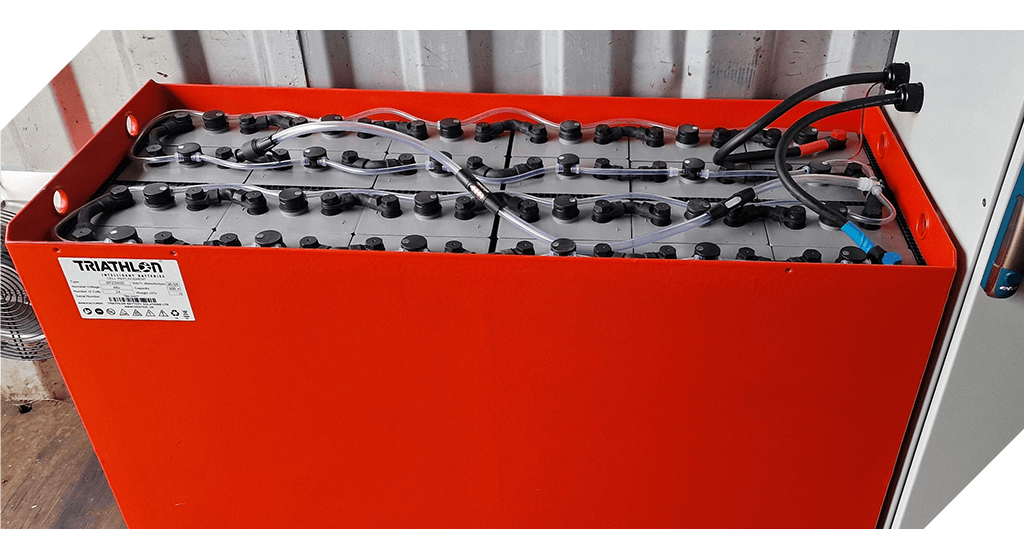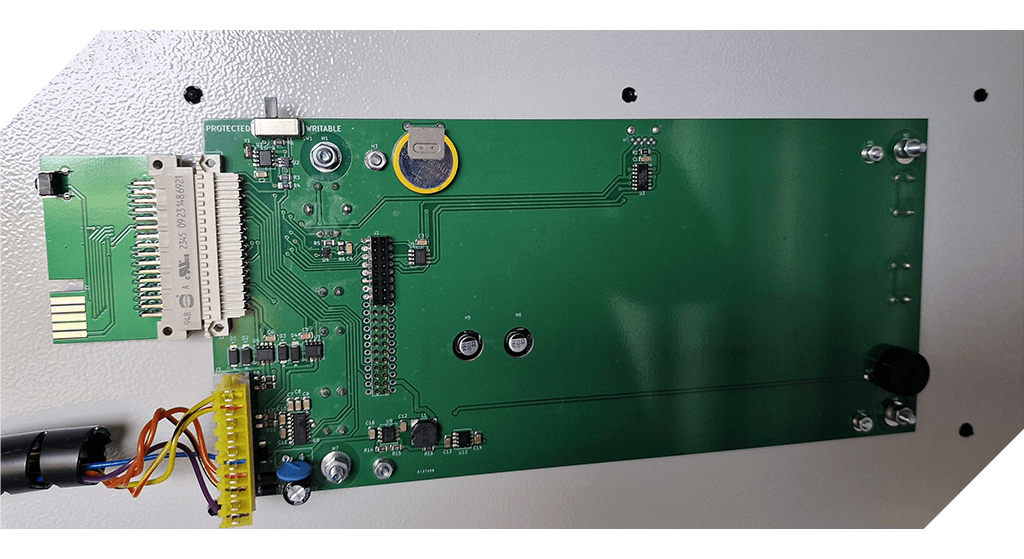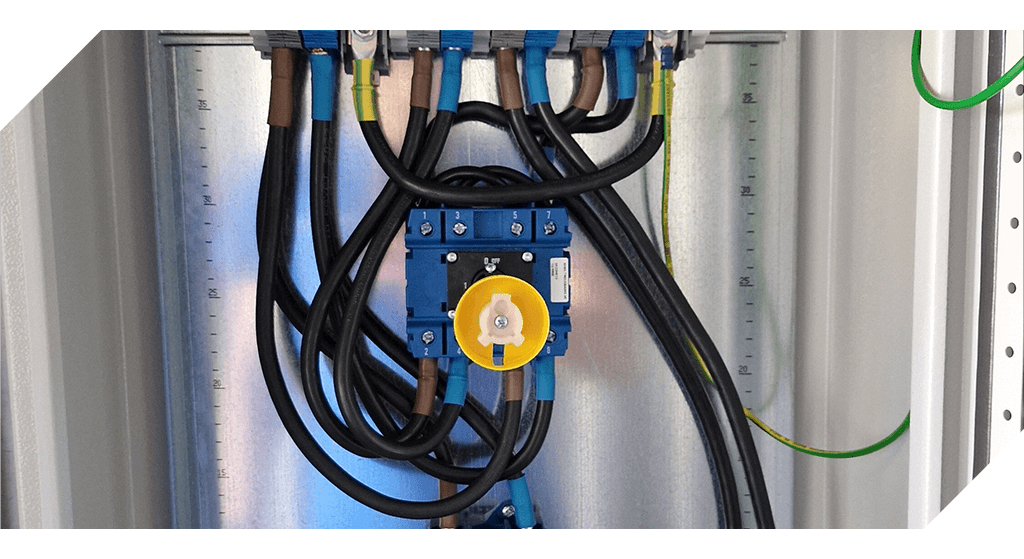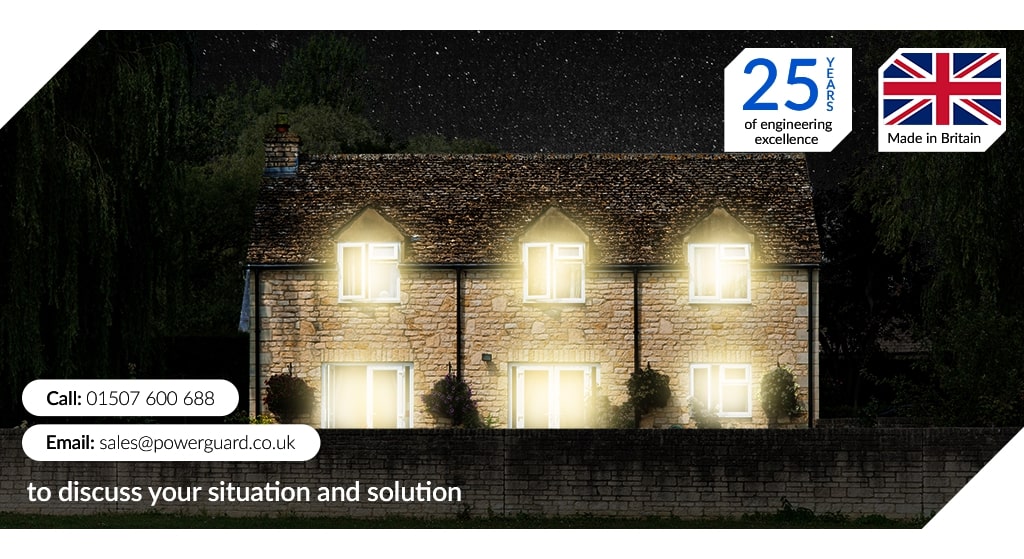An off-grid power supply is a sensible option for homeowners involved in renovating rural properties.
Take, for example, the White family, who were converting a barn into a three bed property in Ivy Todd, Norfolk.
They needed a reliable energy source, initially to power the building work, then to support daily household activities once the house was converted. The problem was, the property had no grid access due to its remote location and the Whites were already familiar with the high costs associated with running a backup diesel generator.
This led to their decision to explore off-grid renewable energy solutions.
Powerguard designed, fabricated and installed a state-of-the-art off-grid power system comprising a 15 kVA PS power control system, 12 solar panels and a 930-amp battery for storage. This solution was designed to ensure a stable and sustainable power supply without reliance on the conventional grid.
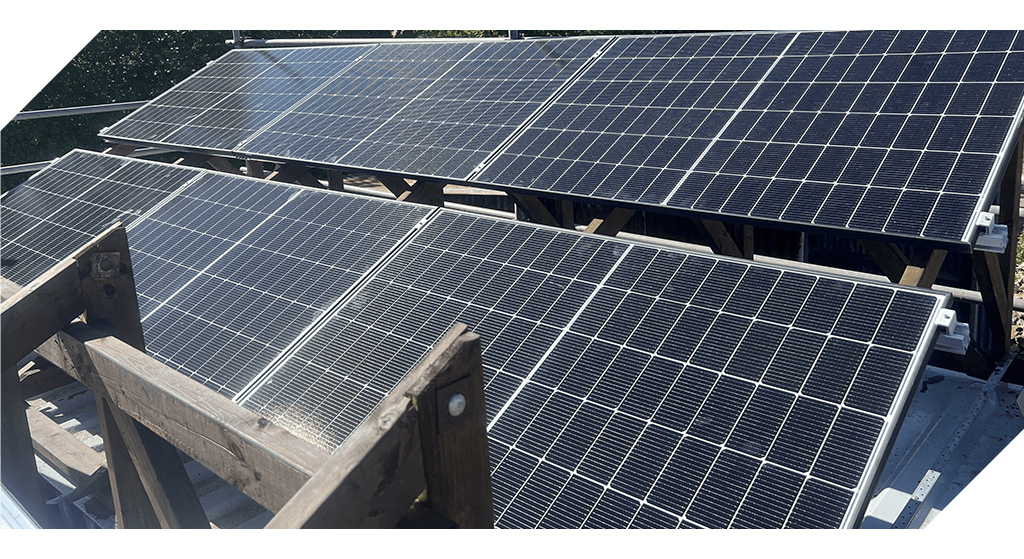
Contents
- The Off-Grid Power Supply Challenge
- The Powerguard Solution
- The Powerful Results
- Conclusion: Why Powerguard?
The Off-Grid Power Supply Challenge
The White family explained to us at Powerguard that they needed a reliable off-grid power system to support both the construction phase and the long-term energy needs of the finished home.
The owners required a solution that would:
- Provide reliable, continuous power for essential household needs and equipment.
- Reduce energy costs, especially those related to diesel fuel consumption for backup power.
- Be environmentally friendly, aligning with their goal of reducing their carbon footprint.
Before Powerguard’s involvement, the property was dependent on diesel generators to supply electricity during construction. However, this setup presented several challenges:
- High Operating Costs: Running diesel generators was expensive, especially with rising fuel prices and regular maintenance demands.
- Environmental Impact: The reliance on diesel resulted in considerable greenhouse gas emissions – at odds with the owners’ sustainability ambitions.
- No Grid Access: With no viable grid connection, the site needed a fully independent system that could deliver reliable power for both the build and the completed home.
A sustainable, off-grid solution was essential to meet their immediate needs and to offer long-term energy independence.
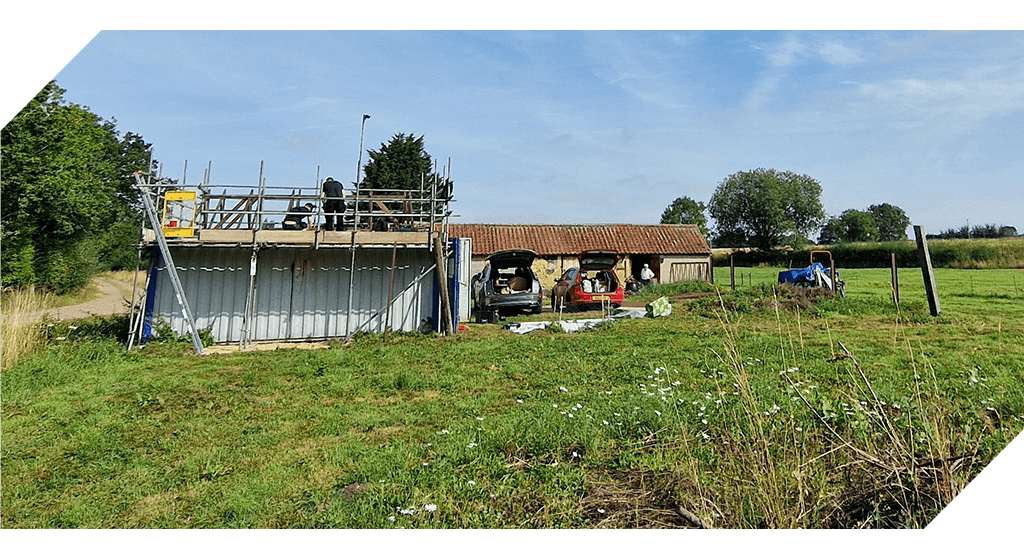
The Powerguard Solution
The off-grid solar power solution for the Ivy Todd property was designed to provide consistent energy and reduce reliance on the diesel generator by offering a more affordable, more sustainable alternative.
The system included the following components:
Solar Panels:
System Capacity: 12 solar panels rated at 420W each, providing a total generation capacity of 5.04 kW. The panels were installed on the roofs of two shipping containers that were already on the property – being used for storage. This maximised the use of available space on the property.
Energy Production: The panels produce approximately 20-30 kWh per day, depending on sunlight conditions, which is more than adequate to meet the daily energy demands of the household.
Battery Storage:
930-Amp Battery: A high-capacity battery providing energy storage sufficient to supply power to the property during non-solar periods.
Backup Power for Cloudy Days: The battery stored excess energy generated during the day, ensuring that the property had a stable power supply even during days with limited solar production, significantly reducing reliance on the diesel generator.
15 kVA PS Power Control System:
The 15 kVA PS power control system regulated energy flow between the solar panels, battery storage and household energy consumption. It ensured optimal performance by balancing energy usage and preventing power overloads.
Emergency Backup:
While the system was designed to cover the property’s energy needs, a diesel generator was retained as an emergency backup, though its use was expected to be minimal.
The Powerful Results
Powerguard built a system to power the property completely off-grid and we devised a plan to utilise the shipping containers already on-site, by placing the solar panels on their roofs and installing the PS control system and the batteries into one of them.
This sustainable off-grid solar power system provided the following benefits:
Energy Independence:
As intended, the property is fully self-sufficient, with the vast majority of the Whites’ energy needs being met by the Powerguard solar panel and battery combo. The backup generator is there to guarantee uninterrupted supply, but is used only in rare circumstances.
Cost Savings:
The switch to off-grid solar power resulted in big savings on fuel. Also, maintenance costs were significantly reduced due to the diesel generator only rarely being used.
Improved Energy Reliability:
The system provided a reliable source of energy, ensuring the Whites could run their house, around the clock, no matter the weather. The use of battery storage meant that power was always available, even during periods of low solar generation.
Environmental Benefits:
The site’s carbon footprint was drastically reduced as the need for diesel fuel was dramatically reduced. This helped the Whites achieve their goal of improved sustainability.
Conclusion: Why Powerguard?
The combination of solar panels, battery storage and a bespoke control system offered a practical and efficient alternative to connecting to the National Grid. The system now delivers a stable, self-sufficient power supply, keeping essential services running smoothly while significantly reducing reliance on diesel generators.
For the White family, the cost of extending the grid would have been a long-term financial burden with little return. In contrast, their Powerguard system provides immediate, ongoing value.
It’s worth noting: Powerguard’s off-grid solutions don’t export to the grid, which means every unit of electricity generated is used on-site. And, because our systems have no generation cap, you can scale your setup to meet the exact demands of your home or business – without compromise.
We are experts in off-grid systems for both domestic and commercial customers, trust us with your power supply and don’t throw money away with a grid connection.
Get in touch with us to find out more about how we can help you achieve energy independence!
Our Products
- Water Pumps
- Industrial (Three Phase)
- Industrial (Single Phase)
- Residential
- Portable
- Off-Grid Power Systems
- Central Battery Systems for Emergency Lighting
- Mini grid & EV charging
- Marine Systems
- Renewable Energy
- Generator & Control Systems
- Uninterruptible Power Supply (UPS) Systems
- Inverters & Inverter Systems
- Battery Chargers Systems
- Diesel & Gas Generators
